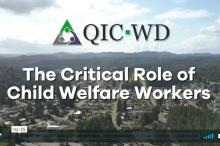Optimism, or positive thinking, can be learned and is important to building resilience. By developing a practice of reframing and controlling self-defeating statements automatic negative thoughts can be replaced with positive ones. By focusing on the positive, individuals are more apt to remain hopeful, resilient, and focus their energy on things they are able to control.
Watch the Video




